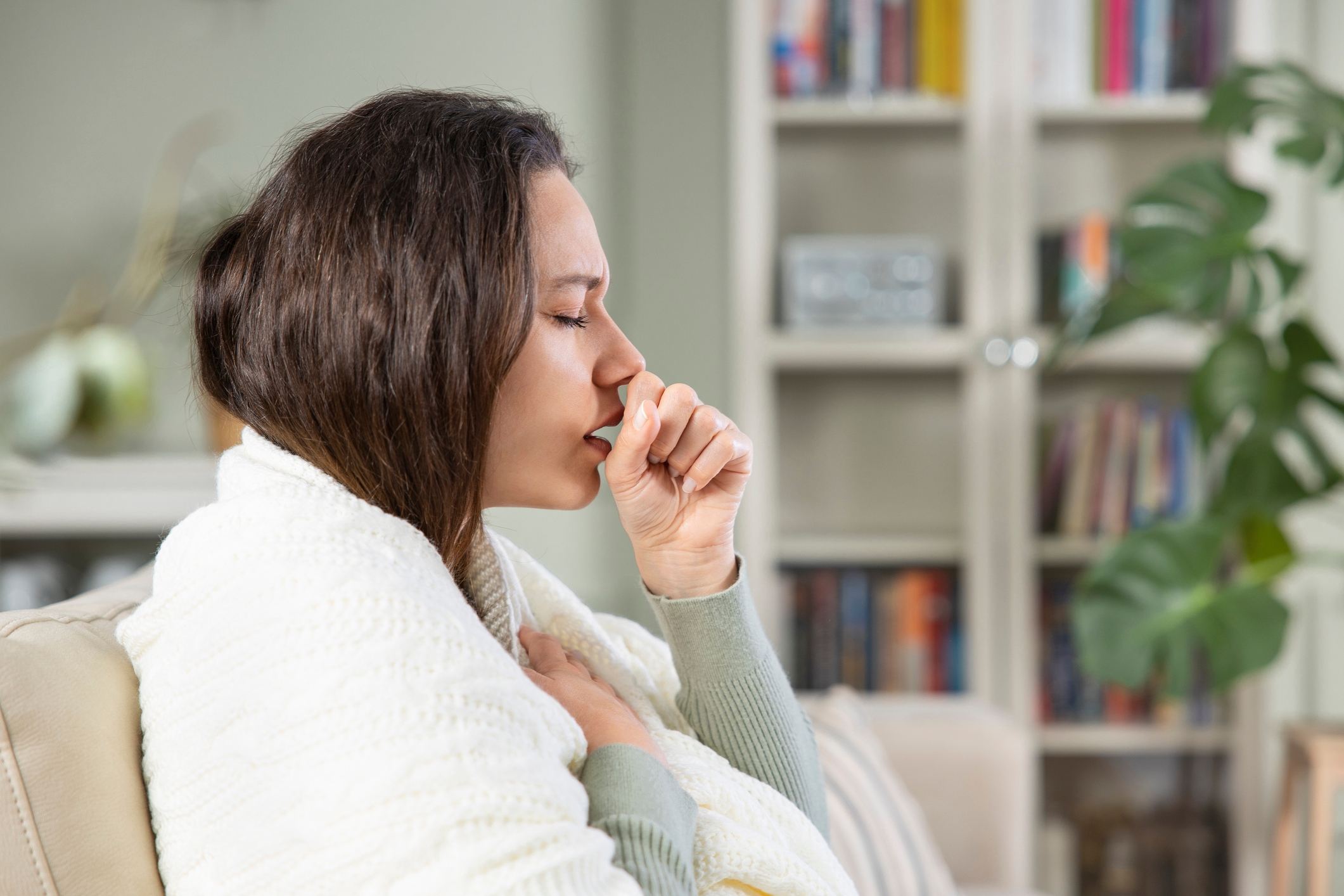Best Mucus-Thinning Medications & Home Remedies to Clear Airways Fast
Dr. Matthew Olesiak, MD, is the Chief Medical Director at SANESolution, a renowned wellness technology company dedicated to providing evidence-based solutions for optimal living. Dr. Olesiak earned his medical degree from the prestigious Jagiellonian University Medical College in Kraków, Poland, where he developed a strong foundation in medicine.
Understanding and Managing Mucus: Insights and Solutions for Punta Gorda Residents
Excessive mucus production can be more than just an annoyance; it often signals underlying health issues that require attention. In Punta Gorda, where the humid subtropical climate can amplify respiratory conditions, understanding how to effectively manage mucus is crucial for maintaining good health. This blog post delves into the world of mucus, exploring its causes, the available treatments ranging from over-the-counter medications to home remedies, and the burgeoning market for mucus-thinning medications, which is expected to reach $26.10 billion by 2030.
Summary Points
- The Burden of Excess Mucus
Excess mucus production can lead to discomfort such as frequent swallowing, throat clearing, and coughing, and is often indicative of various medical conditions.
- Common Causes of Thick Mucus
Residents of Punta Gorda might experience increased mucus production due to conditions like the common cold, sinusitis, acid reflux, asthma, allergies, and chronic lung diseases. Each condition requires a specific approach for effective management.
- Mucus-Thinning Medications
The market for expectorants, medications that thin mucus to help clear it from the respiratory tract, is growing significantly. These medications are available both over-the-counter and by prescription and are essential in treating conditions that lead to mucus buildup.
- Effective Home Remedies
In addition to medications, several home remedies can be particularly effective in Punta Gorda:
- Warm Salt Water Gargling: Helps soothe the throat and can thin the mucus.
- Cool Mist Humidifier: Adds moisture to the air, which can help break up mucus in the airways.
- Staying Hydrated: Drinking plenty of fluids thins the mucus, making it easier to expel.
- Using Essential Oils: Oils like eucalyptus and peppermint can open airways and alleviate congestion.
- Elevating the Head During Sleep: Reduces postnasal drip and congestion at night.
Local Impact and Advice
The humid climate of Punta Gorda intensifies the need for effective mucus management strategies. Local healthcare providers often recommend using humidifiers throughout the year to manage indoor humidity and counteract the effects of air conditioning. Understanding the specific triggers and treatments suitable for the local environment can significantly improve the quality of life for those affected by respiratory issues.
Next Ideas for Punta Gorda, FL Residents
For the residents of Punta Gorda, recognizing the causes and exploring effective treatments for excess mucus is essential for maintaining respiratory health, especially given the local climate challenges. By combining medical treatments with proven home remedies, individuals can effectively manage symptoms and enhance their overall well-being.
This comprehensive guide provides the necessary information to understand the complex nature of mucus, tailor treatments to individual needs, and adapt strategies to the unique environmental conditions of Punta Gorda, ensuring better management of respiratory health in the community.
Key Takeaways
- Excess mucus production can be irritating, as it leads to frequent swallowing, throat clearing, and coughing. It can also indicate underlying conditions that need to be evaluated and treated.
- Various conditions can cause thick mucus, including the common cold, sinusitis, acid reflux, asthma, allergies, and lung disease.
- Treating excess mucus depends on the cause. OTC and prescription medications can help reduce mucus. Effective at-home remedies can also help to thin mucus. These home remedies include warm salt water gargling, throat cleaner, using a cool mist humidifier, staying hydrated, using essential oils, and elevating your head while sleeping.
What is mucus?
Mucus is a sticky substance produced by the body and is vital in keeping you healthy. Though mucus and phlegm are often used interchangeably, phlegm is a type of mucus your respiratory system produces. Mucus lines the moist surfaces of your body, such as the lungs, sinuses, mouth, stomach, and intestines. It serves as a lubricant to prevent tissues from drying out and as a defense against harmful substances like allergens, viruses, and bacteria.
Any substance you breathe in is caught in the mucus, including bacteria, viruses, and dust, pushed out of the lungs by little hairs called cilia. The mucus and these trapped substances are then transported to the stomach and eventually expelled from the body.
While you may not be aware of the mucus that flows through your body, you will almost definitely notice it when you produce too much of it or when it changes consistency due to an infection. Infections can cause the mucus to become thicker and stickier, leading to inflammation in the mucous membranes that line the nose and airway, which can cause certain airway glands to produce more mucus. This can stimulate even more mucus production, resulting in a runny or clogged nose and post-nasal drip.

Causes of Excess Mucus Production
Conditions that cause your mucous membranes to switch into overdrive and produce excess mucus include:
- Viral and bacterial infections, i.e., the common cold, sinusitis
- Asthma
- Chronic acid reflux (Gastroesophageal Reflux Disease, or GERD)
- Lung diseases, like lung cancer, pneumonia, chronic bronchitis, chronic obstructive pulmonary disease (COPD), emphysema, cystic fibrosis
- Cigarette smoking or exposure to second-hand smoke
- Long-term exposure to air pollution and chemicals
- Allergies
- Specific prescription medications, such as ACE inhibitors for blood pressure
- Dry indoor environment
- Dehydration
- High consumption of diuretic fluids, such as alcohol and caffeinated coffee and tea
Symptoms of Excess Mucus Production
Symptoms of excess mucus production include:
- Frequent throat clearing
- Sore throat
- Cough
- Runny nose
- Hoarseness
- Stuffy nose
- Stomach upset due to swallowed mucus

Treatments to Thin Mucus and Clear Phlegm
Several OTC and prescription mucus thinners and home remedies can help thin mucus secretions, making it easier to expel from your nose, throat, and lungs.
We’ll start with the best mucus-thinning medications.
Mucus-Thinning Medications
OTC and prescription mucus-thinning medications fall into one of four categories of mucoactive agents: Mucolytics, Expectorants, Mucokinetics, and Mucoregulators. Let’s explore each of them.
Mucolytics
Mucolytics thin out mucus by breaking down chemical bonds to make coughing easier. There are two types of mucolytics, each used for specific circumstances:
- Classic mucolytics, commonly found in over-the-counter and prescription medications, contain active agents such as guaifenesin, N-acetylcysteine, carbocysteine, and erdosteine.
- Peptide mucolytics, conversely, are used for more serious conditions like cystic fibrosis, where the mucus is thicker and often contains pus. These mucolytics contain ingredients like thymosin beta-4 or dornase alfa.
Other Mucus-Thinning Medications: Mucoactive Medications
The other types of mucoactive agents are as follows:
Expectorants: Expectorants increase airway secretions. They achieve this by augmenting the volume of water in the secretions, which reduces their stickiness, making it easier to cough them up. The most common active ingredient in expectorant brands is guaifenesin. Popular brands include Robitussin and Mucinex.
Mucokinetics. Mucokinetic agents improve cough effectiveness by increasing expiratory airflow or unsticking secretions from airway walls. Aerosol surfactant is a promising medication in this class.
Mucoregulators. Mucoregulators suppress goblet cell action to regulate mucus production.

Mucus-Thinning Medications: Formulation and Usage
Mucolytics come in various forms, including tablets, capsules, and syrups that can be taken orally (by mouth). They can also be inhaled in mist through an aerosol inhaler or a nebulizer machine. The dosage varies based on the drug, formulation, and treated condition.
Over-the-counter (OTC) medications should be taken as prescribed, usually two to three times daily.
Common OTC mucolytics include:
- Robitussin DM (guaifenesin): This is an expectorant and cough suppressant that comes in syrup form.
- Mucinex (guaifenesin): It comes in tablet and syrup form.
- Mucolyte (bromhexine): It comes in dissolvable tablets, syrup, and regular table forms.
Prescription mucolytics can manage severe respiratory diseases like cystic fibrosis, either for acute episodes or daily use.
Common prescription mucolytics include:
- Availnex (carbocisteine): Forms available: chewable tablet, tablet, and inhaler primarily used to treat emphysema and cystic fibrosis
- Ectrin (erdosteine): Forms available: tablet, granules, capsule, and powder used mainly to treat chronic bronchitis.
- Mucomyst (N-acetylcysteine): Administered by a nebulizer to treat conditions like cystic fibrosis, COPD, and pneumonia.
- Pulmozyme (dornase alfa): Administered by nebulizer to treat cystic fibrosis
- TB-500 (thymosin beta-4): Administered by nebulizer to treat cystic fibrosis
5 Home Remedies to Thin Mucus and Phlegm
Natural home remedies like those listed below can also help keep mucus thin.
1. Moisten the Air.
Dry air can irritate the nose and throat, leading to the production of more mucus as a lubricant. Placing a cool mist humidifier in the bedroom is a good idea to avoid a sore throat and promote better sleep. This can keep the nose clear and ensure that you breathe comfortably.
If you live in an area with dry air, running a cool mist humidifier throughout the day can be helpful. This is especially true during the winter months. However, it is important to change the water daily and clean the humidifier according to the instructions on the package.
2. Drink plenty of water and other fluids.
To keep mucus thin, it’s essential to keep the body hydrated. With common colds or a sinus infection, it’s recommended to drink extra fluids to help thin mucus and drain the sinuses. Those with seasonal allergies may also benefit from staying hydrated to reduce congestion.
Warm beverages, especially those of the herbal variety, can alleviate breathing difficulties and expel mucus from the body. Green tea, sage tea, and many other herbal teas contain expectorant properties that can help treat respiratory problems and combat the viruses responsible for the symptoms.
Sage is an excellent natural expectorant that can help to soothe your respiratory system. Making sage tea at home is easy and can provide effective relief. Start by steeping a teaspoon of fresh or dried sage in hot water for 10 minutes. Once the tea has been brewed, strain it and drink it multiple times daily for the best results.
Warm or hot herbal teas or other liquids can quickly relieve sore throat discomfort and reduce coughing episodes.
3. Gargle with warm salt water.
If you’re experiencing phlegm in the back of your throat or a sore throat, gargling warm salt water may help alleviate these symptoms. To effectively gargle salt water, follow these simple steps:
- Mix 1/2 to 3/4 teaspoon of salt with a cup of warm water. Warm water is preferable because it dissolves the salt more quickly. It’s also recommended to use filtered or bottled water to avoid any unpleasant taste from chlorine.
- Take a sip of the mixture and tilt your head back slightly. Let the water wash into your throat without swallowing it.
- Gargle the water by blowing air up from your lungs for 30 to 60 seconds before spitting it out.
- Repeat the process as often as necessary.
This method is a safe and effective way to relieve symptoms associated with throat irritation.
4. Use Essential Oils
Several essential oils act as expectorants to help expel mucus, including:
- Eucalyptus oil
- Peppermint oil
- Rosemary oil
- Cedarwood oil
- Pine oil
There are various ways to utilize your essential oils for their expectorant properties. The simplest way is to mix them with a carrier oil and apply the blend to your chest by massaging it gently.
One of the most effective ways to alleviate congestion is to fill a sink with hot water and add 5 or 6 drops of your favorite essential oil. Cover your head and shoulders with a towel and lean over the sink. Inhale the steam for around 5 minutes or as long as you can tolerate. Be careful not to burn your skin in the hot water or steam.
5. Elevate your head when sleeping
Sleeping with your head elevated has been shown to have many health benefits, and it’s particularly effective at reducing excess phlegm in the lungs and preventing too much mucus from accumulating and dripping down the back of your throat, a condition called postnatal drip.
You can put a foam wedge between your mattress and box spring to elevate your head or stack a few pillows beneath your head and upper torso. Alternatively, you can use an adjustable bed base, which is easier and more convenient than the other options.
When to See a Doctor
Experiencing excess or thick phlegm occasionally is generally not a cause for concern. It is normal to notice it in the morning as it accumulates and dries overnight. You may also see more phlegm when sick, have seasonal allergies, or are dehydrated.
However, you should visit your doctor if you experience uncomfortable phlegm regularly. Excess phlegm production can signal more serious health conditions, such as asthma, allergies, acid reflux, and chronic bronchitis.
Summary
It is important to keep in mind that our body produces mucus consistently. When we experience excess mucus, it usually indicates that our body is fighting against a cold, sinus infection, allergies, or other conditions.
There are numerous medicines and remedies tailored to different severity levels and preferences that can be helpful. Over-the-counter (OTC) medications and at-home remedies like using a cool mist humidifier and staying hydrated are great places to start.
Severe cases of excess mucus can usually be treated with prescribed medication.
If you consistently experience thick mucus for a few weeks, make an appointment with your doctor for an evaluation and treatment options.
Frequently Asked Questions
What is the best medicine for mucus thinning?
Guaifenesin is a medication that helps to loosen and clear mucus or phlegm from the chest when you are suffering from congestion caused by a cold or flu. It works by thinning the mucus or phlegm in the lungs, making it easier to cough up and clear. However, studies have shown that guaifenesin is ineffective in clearing mucus or phlegm in lung diseases.
What thins mucus naturally?
Drinking fluids like juice, clear broths, and soup can help loosen congestion by aiding mucus movement. Warm liquids are particularly effective in thinning mucus. Another mucus-thinning option is to use a cool mist humidifier while you sleep.
How long does it take to get rid of thick mucus?
If you are experiencing allergies, asthma, or any other condition that leads to excessive mucus production, it is crucial to seek medical attention. However, in cases where phlegm results from a viral infection like a common cold, it typically improves within seven to ten days.
What is a natural alternative to Mucinex?
Peppermint contains menthol, which can help thin mucus and loosen phlegm. Peppermint tea is widely available for purchase online or in stores and is considered a safe drink to consume.
- New Report Says Your Brain Could Be the Key to Reducing Phlegm Over 50
- Doctor's "Leave The Throat Phlegm Behind" Tutorial Goes Viral With People Over 50
- Can You Relieve Throat Phlegm and Coughing In 60 Seconds A Day? This Doctor Says Yes
- How To Banish Phlegm When 50+ (Do This Every Day)
References
1- https://www.databridgemarketresearch.com/reports/global-expectorants-market





